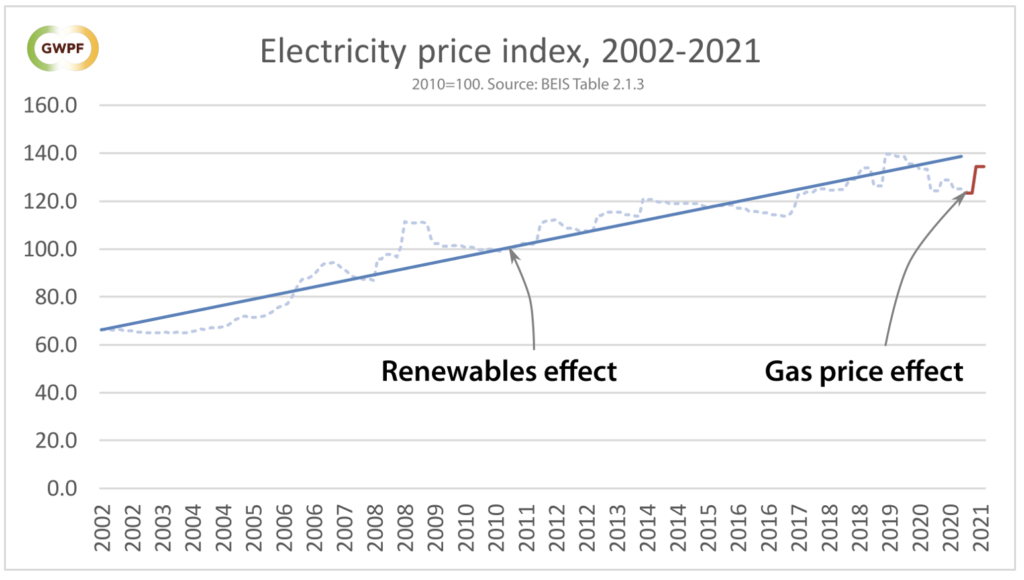Energy regulator criticised for cheap spin about continuing rise in energy prices
Press reports indicate that the regulator, Ofgem, is on the verge of permitting energy suppliers to increase domestic consumer dual fuel bills by 13% from October. This increase is being blamed on rising wholesale gas prices.
As anyone familiar with the energy markets will realise this is cheap spin intended to confuse the unwary and obscure the multiple factors, many of them due to policies, that are involved.
The underlying secular trend of electricity price is rising due to high subsidies to renewables (now about £12 billion a year) and escalating system management costs involving higher balancing costs and increased transmission expenditures, such as the £1 billion Western Link designed expressly for wind power. This trend is clearly visible in the government’s own electricity price index:
Renewable subsidies were introduced in 2002, and the rapid growth in those subsidies accounts for much of the upward trend. The plateau in prices in 2014 to 2016 in part reflects the Cameron government’s attempt to bring the costs of the “green crap” under control.
In the context of that larger climate policy impact, the effect of currently rising gas prices is a minor though unwelcome contributor.
Furthermore, as any competent industry analyst would confirm, the present rises in gas are themselves due to a complex of global, regional and national factors, several of them directly attributable to climate policies.
Overall, global gas prices have been increased by temporary supply difficulties caused by the coronavirus pandemic, and are expected to fall again as the world economy recovers and normal services resume.
Regionally and nationally, as one energy sector expert put it to us, gas prices are rising in large part due to increased gas burn in power stations as a result of:
very low wind energy production across Europe, and particularly in the UK
falling UK nuclear output as a result of decades of government neglect
reduced coal plant output as a direct result of government environmental policy.
Ofgem and gullible reporters are obscuring these complex effects and letting the UK government off the hook.
To be fair, government is not entirely to blame for the latest increase in household bills – international gas price rises due to pandemic disturbance are beyond their control – but a very large part of the increase is the result of nearly twenty years of misguided and dysfunctional energy policy.
A good deal of which was designed by Mr Brearley, now the Chief Executive of Ofgem, when he served in Tony Blair’s Strategy Unit, then Director of the Office for Climate Change (OCC), which was responsible for the Climate Change Act (2008), and later in the Department of Energy and Climate Change under Ed Miliband.
The question is, why should the British consumer pick up the tab for government’s mistakes?


